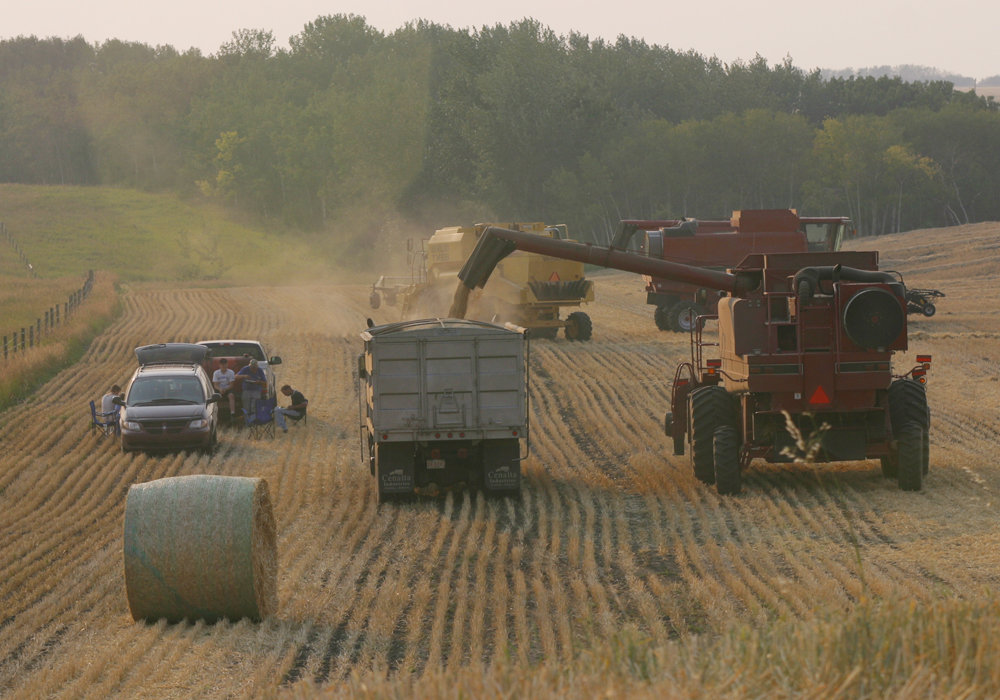The Alberta government plans to roll back some labour and safety regulations for the vast majority of farms, attempting to ease concerns from industry over the contentious issue.
The Farm Freedom Safety Act, tabled today in the legislature, puts forth a plan the United Conservative Party government hopes will create a flexible farm safety regime, aiming to appease producers while leaving some protections to workers.
The legislation, however, plans to roll back some safety standards for the majority of Alberta’s farms.
If passed, farms with five or fewer employees will be exempt from needing workers insurance. These farms make up 78 percent, or 32,000, of all farms in the province. The remaining 22 percent, or 9,000, are considered large.
Read Also

Farming Smarter receives financial boost from Alberta government for potato research
Farming Smarter near Lethbridge got a boost to its research equipment, thanks to the Alberta government’s increase in funding for research associations.
Large farms with six or more workers will have the option to either get WCB coverage or private insurance for their employees. Insurance must cover death, dismemberment and disability.
Along with the insurance exemption, small farms also won’t be required to follow all employment standards rules.
There are concerns that not requiring small farms to have insurance will deter people from wanting to work in the industry, therefore adding to labour shortage pressures.
Agriculture Minister Devin Dreeshen, however, believes there is a solution to this.
He said the market could put pressure on small farmers to get insurance for their employees if they notice that labour retention becomes an issue.
“I think the market place will ultimately decide. There is an exemption, but that’s the bare minimum,” he said.
“If smaller farms, in order to attract a worker, need to offer some private worker insurance, they are in a free market and are free to do that.”
It’s expected the legislation will be widely supported by farmers in Alberta.
The former NDP government’s Bill 6 caused uproar when it was introduced, and farmers ever since have been urging changes.
Once elected, the UCP government consulted with farmers over the summer, asking them what changes they wanted.
Many asked for choice of workplace insurance, simple and clear guidelines that fit the reality of agriculture, a reduction in documentation and regulations, and limited labour relations.
“This is something we heard from farmers they wanted to have; that special consideration for small farms, and that’s where we believe we struck the right balance,” Dreeshen said.
If employees without insurance do get injured, Dreeshen said there are other actions they can take for remedy, such as going to court.
He said the labour ministry will be spending $500,000 on education for both farmers and farm workers to educate them about insurance coverage options.
“It will help educate more in the complexities of an insurance-type payout,” he said.
The changes mean it’s possible for there to be an onus on employees to get their own insurance coverage.
It also allows co-pay situations to arise, Dreeshen said, allowing the employee and employer to share in the premium cost. He noted there are tax benefits with this system.
“We wanted the most amount of flexibility when it comes to private worker insurance,” he said. “We wanted to try to reflect the realities of how the labour code works.”
As it was before, family members and neighbours helping on the farm will be exempt from all the regulations.
Hutterite colonies largely won’t be affected, given the majority of people working are members of the family.
With the legislation, all farms with waged, non-family workers will have to comply with the Occupational Health and Safety Act, which ensures basic health and safety. However, they will be exempt from the OHS regulation and code.
They will be exempt from overtime, hours of work and youth rules. General holiday pay will be 4.2 percent and they must get four days of rest for every 28 days of work. Employees also have the right to refuse unsafe work.
Employees will no longer be allowed to unionize. There are currently no unionized farm workers in the province.
Current Occupational Health and Safety, Labour Relations and WCB requirements will continue to apply to greenhouses, nurseries, mushroom farms and sod farms. They will, however, receive the family member and small employer exemption, as well as be exempt from overtime, hours of work and youth rules, and have general holiday pay at 4.2 percent, and four days of rest for every 28 days of work.
Cannabis production facilities will not be included in the definition of farm and ranch for any workplace legislation.
Contact jeremy.simes@producer.com


















